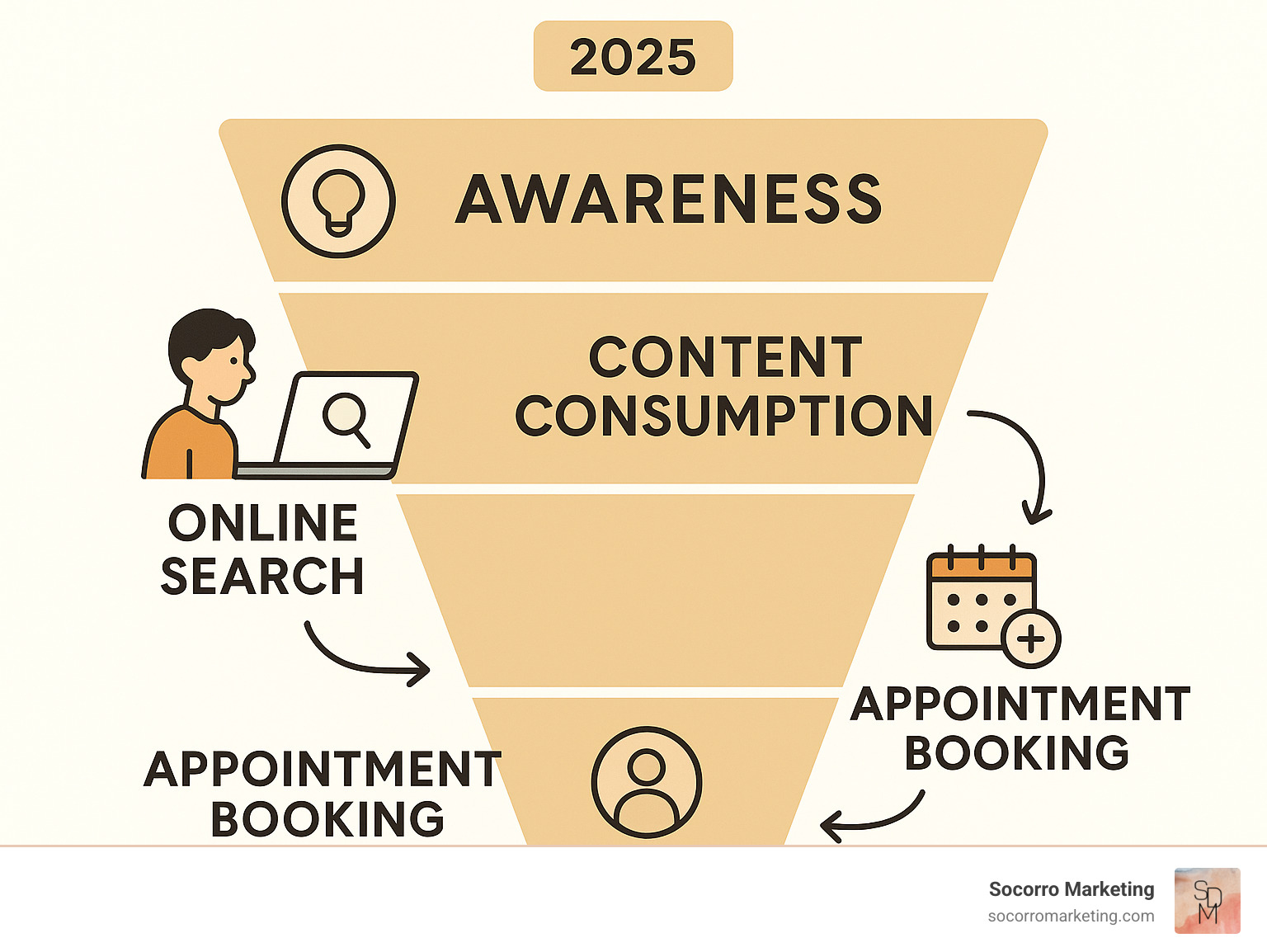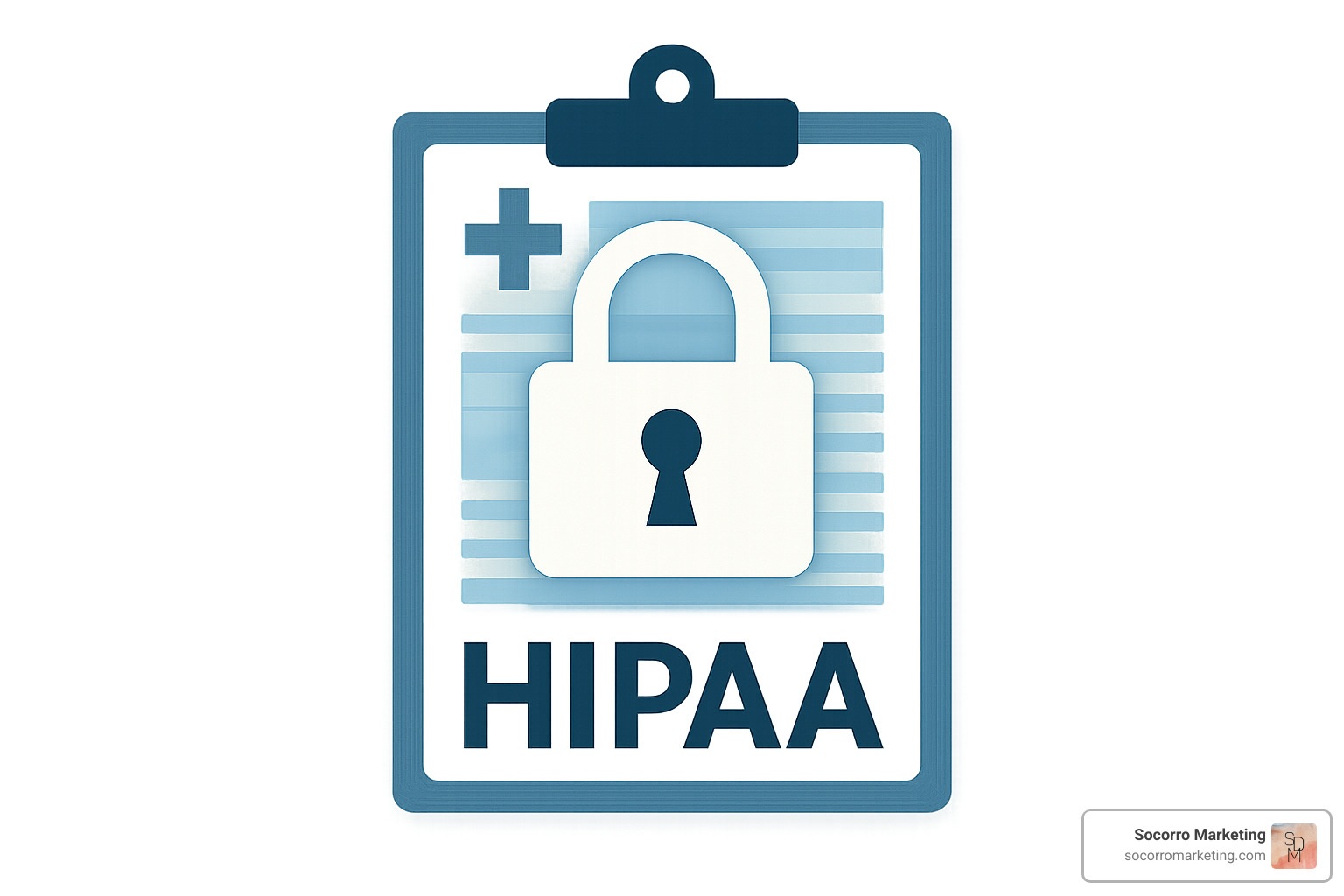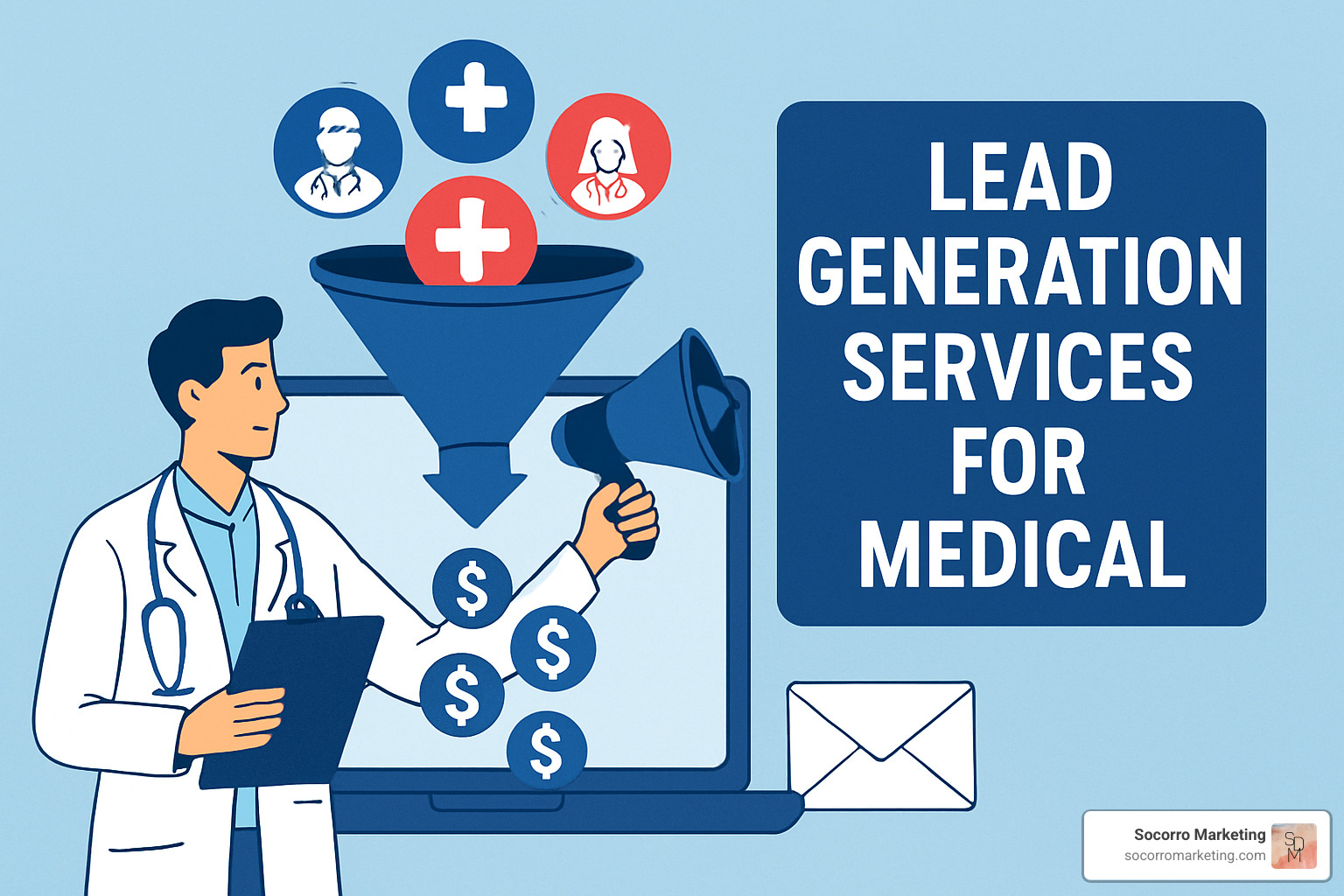Lead generation services for medical practices have become essential for healthcare providers looking to grow their patient base in today's digital-first world. These specialized services help medical practices attract, nurture, and convert potential patients through targeted marketing strategies designed specifically for the healthcare industry.
Key components of medical lead generation services include:
The healthcare industry faces unique challenges that generic marketing agencies simply can't steer. 60% of consumers start their search for healthcare providers online, yet medical practices must balance aggressive patient acquisition with strict privacy regulations, clinical accuracy, and the need to build deep trust with potential patients.
Unlike other industries, healthcare marketing requires understanding complex patient decision-making processes, insurance considerations, and the critical importance of maintaining clinical credibility in all communications. The stakes are higher - a poorly executed campaign doesn't just waste budget, it can damage a practice's reputation and even raise compliance concerns.
As Grace Ascione, a registered nurse with an MBA and over 15 years of experience in healthcare marketing, I've seen how lead generation services for medical practices can transform patient acquisition when executed with clinical insight and regulatory expertise. My unique background bridging clinical care and digital marketing has helped numerous healthcare businesses steer the complex landscape of compliant, effective patient attraction strategies.

Healthcare marketing isn't like selling shoes or software. When someone searches for a cardiologist or mental health counselor, they're not just shopping—they're vulnerable, often scared, and placing their trust in someone who could literally save their life. This reality makes lead generation services for medical practices both incredibly important and uniquely challenging.
I've watched too many healthcare practices struggle with generic marketing agencies that treat medical leads like any other business inquiry. The result? Frustrated patients, wasted budgets, and sometimes serious compliance headaches. Healthcare lead generation requires a completely different approach—one that understands both the clinical side of patient care and the strict regulations that govern how we can communicate with potential patients.
The competition in healthcare marketing has intensified dramatically. Every specialty faces crowded markets, from family medicine to specialized surgical practices. But unlike other industries, healthcare providers can't simply outshout their competitors or make bold claims to stand out. Everything must be clinically accurate, ethically sound, and compliant with regulations that can shut down your practice if violated.
What makes this even more complex is that patients today are more informed than ever. They research symptoms online, read reviews, and often arrive at your virtual doorstep with specific questions and concerns. Your lead generation strategy needs to meet them where they are while building the trust necessary for them to choose your practice over dozens of alternatives.

HIPAA compliance isn't just a legal requirement—it's the foundation that determines whether your lead generation efforts will build trust or create serious problems. I've seen practices face investigations because their marketing agency didn't understand the difference between general health information and Protected Health Information (PHI).
The challenge is that effective lead generation often requires collecting and using personal information to nurture prospects. But in healthcare, you can't just ask someone about their medical history in a contact form or mention specific conditions in follow-up emails without proper consent and authorization. Every piece of data must be handled through secure data handling systems that meet HIPAA standards.
This is where many marketing agencies fail healthcare clients. They use the same CRM systems and communication tools they'd use for any business, not realizing that storing a potential patient's inquiry about depression treatment or fertility issues requires the same security measures as medical records. Vetting marketing partners for compliance becomes crucial—any vendor handling patient data must sign a Business Associate Agreement and demonstrate their systems meet HIPAA requirements.
The rules around marketing communications are equally strict. You can't make misleading claims about treatment outcomes, and you must be careful about how you discuss medical conditions in your content. Avoiding misleading claims isn't just about ethics—it's about maintaining your medical license and avoiding regulatory penalties.
What's particularly tricky is that patients expect quick responses to their inquiries. Research shows that responding within the first hour makes you 60 times more likely to qualify a lead. But that rapid response must still maintain HIPAA compliance, which requires specialized systems and trained staff who understand the boundaries of compliant communication.
Trust isn't just nice to have in healthcare marketing—it's everything. When someone is dealing with chest pain, fertility struggles, or mental health challenges, they're not just evaluating your services. They're deciding whether to trust you with their most vulnerable moments.
This is why patient-centric messaging works so much better than traditional sales approaches in healthcare. Instead of pushing appointments, effective medical lead generation focuses on educational content over hard selling. Patients want to understand their conditions, learn about treatment options, and feel confident that you have the expertise to help them.
Transparency in services and pricing has become increasingly important as patients take more responsibility for healthcare costs. High-deductible health plans mean patients are essentially paying out of pocket for many services, so they want to know what they're getting into. Practices that clearly explain their services, costs, and what patients can expect see higher conversion rates from their leads.
Showcasing expertise and credentials goes beyond listing degrees and certifications. Patients want to see that you understand their specific concerns and have successfully helped others with similar issues. This might mean highlighting your experience with certain conditions, sharing educational content that demonstrates your knowledge, or featuring patient success stories (with proper consent, of course).
The foundation of all this trust-building is a professional, user-friendly website that reflects the quality of care you provide. If your website looks outdated or is difficult to steer, potential patients assume your practice might be similarly behind the times. Your online presence needs to convey competence, caring, and accessibility from the moment someone finds you.
Research shows that 73% of patients trust a healthcare brand based on positive reviews, but managing reviews in healthcare requires careful attention to patient privacy. You can't respond to negative reviews by discussing specific treatments or conditions, and you need proper consent before featuring patient testimonials.
This is where having a marketing partner with clinical insight makes all the difference. We understand not just the technical requirements of HIPAA compliance, but the emotional journey patients go through when seeking care. This perspective shapes every aspect of our lead generation approach, from the content we create to the way we nurture prospects through their decision-making process.
Effective lead generation services for medical practices blend inbound and outbound tactics. Below is a streamlined look at the approaches that matter most so you can focus on what actually drives patient appointments.

Content marketing. High-quality, clinically reviewed articles, FAQs and short videos educate prospective patients while establishing authority. One cornerstone resource is our guide on Defining Your Message and Brand with Medical Content Marketing.
SEO. Local keywords (e.g. “pediatric dentist Golden CO”) paired with an optimized Google Business Profile make you findable when people search “near me.” Mobile speed, medical schema markup and authoritative backlinks all raise visibility.
Social media. Short educational reels, Q&A sessions and condition-specific infographics position your team as a trusted source—without crossing HIPAA boundaries. See how small clinics benefit in How Content Marketing Can Benefit Your Small Business Healthcare Facility.
PPC. Carefully selected keywords, geotargeting and compliant ad copy turn search intent into booked visits quickly. Smart bidding protects your ad spend.
Email. HIPAA-secure newsletters and onboarding sequences deliver seasonal tips, appointment reminders and post-visit follow-ups that keep your schedule full.
Specialty campaigns. Highly regulated niches such as mental health require custom messaging; our approach to Behavioral Health Digital Marketing shows how sensitivity and compliance can coexist.
HIPAA-ready CRMs. Automated lead scoring routes hot prospects directly to front-desk staff, while secure integrations protect PHI.
Marketing automation. Personalized drip campaigns share educational resources based on user behavior, shortening the path from first click to first visit.
Reviews & testimonials. A structured, compliant request system amplifies happy patients and boosts local SEO. Research shows 73 % of people trust a healthcare brand with positive reviews—proof that social proof belongs in every campaign.
By focusing on these core tactics instead of spreading budget thinly across every shiny new tool, practices see faster, more sustainable growth.
The marketplace is crowded with agencies promising a flood of new patients. In reality, only a fraction combine marketing chops with a deep understanding of HIPAA and clinical workflows.

At Socorro Marketing, our nurse-managed model ensures every campaign marries clinical accuracy with marketing best practices. Because we’re rooted in healthcare, we speak both the language of patient care and ROI.
Tracking success means looking past clicks to actual appointments and long-term revenue.
Staying ahead of these shifts positions your practice to capture patients wherever they begin their healthcare journey—on a search engine, a smart speaker or a telehealth app.
A lead shows interest (downloads a guide, fills a form). A qualified lead has been screened for insurance, location, clinical need and readiness to book. Proper qualification saves staff time and improves patient satisfaction.
The best results come from combining quick-win paid tactics with long-term organic growth.
Absolutely. With focused local SEO, niche content and modest ad budgets, one-provider offices can out-rank larger systems in their immediate area while spending a fraction of the big-hospital budget.
So, we've journeyed through the intricate world of marketing for medical practices. It's clear, isn't it? This isn't your average marketing gig. When it comes to lead generation services for medical practices, you need a partner who truly "gets" healthcare. It's more than just clicks and conversions; it's about building trust and fostering health.
We've seen how compliance isn't just a suggestion; it's the bedrock of everything. Any marketing partner must show they truly understand HIPAA and how to handle patient data with the utmost care. And it's not just about getting any leads, but about quality over quantity, focusing on patients who will truly benefit and stay with your practice long-term. In healthcare, building trust isn't just a nice-to-have; it's absolutely essential, demanding messages that are always clinically accurate. And of course, if you can't measure your success, how will you ever know what's truly working to grow your practice and keep patients happy?
Research consistently shows that practices working with specialized healthcare agencies achieve better results—we're talking about things like 80% increases in qualified leads and 33% shortened sales cycles. But these great benefits only happen when you work with agencies that truly understand the healthcare landscape, not just general marketing.
That’s exactly where Socorro Marketing shines. Our unique, nurse-managed approach means we're not just marketers; we understand the very heart of healthcare. We bridge the gap between clinical expertise and marketing savvy, crafting strategies that genuinely resonate with patients because we understand their journey from both sides. We know how important it is to earn and keep that trust, ensuring every piece of communication is not only effective but also medically sound and deeply credible.
Whether you're a solo practitioner looking to grow your patient base or a multi-location practice seeking to optimize your marketing ROI, the right lead generation service for medical practices can transform your patient acquisition efforts. The key is choosing a partner who understands that healthcare marketing is fundamentally different—one that combines marketing expertise with clinical insight to deliver results that truly matter for your practice and your patients.
Ready to transform your patient acquisition strategy? Contact Us to learn how our nurse-managed approach can help your practice grow while maintaining the highest standards of patient care and regulatory compliance. Explore our Digital Marketing services to find how clinical expertise and marketing excellence can work together to build your practice's success.